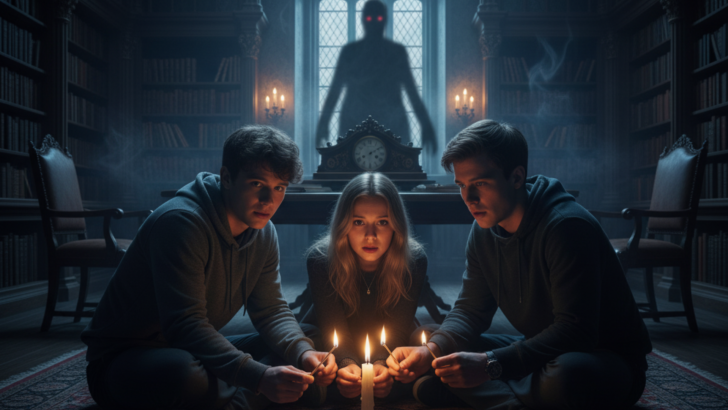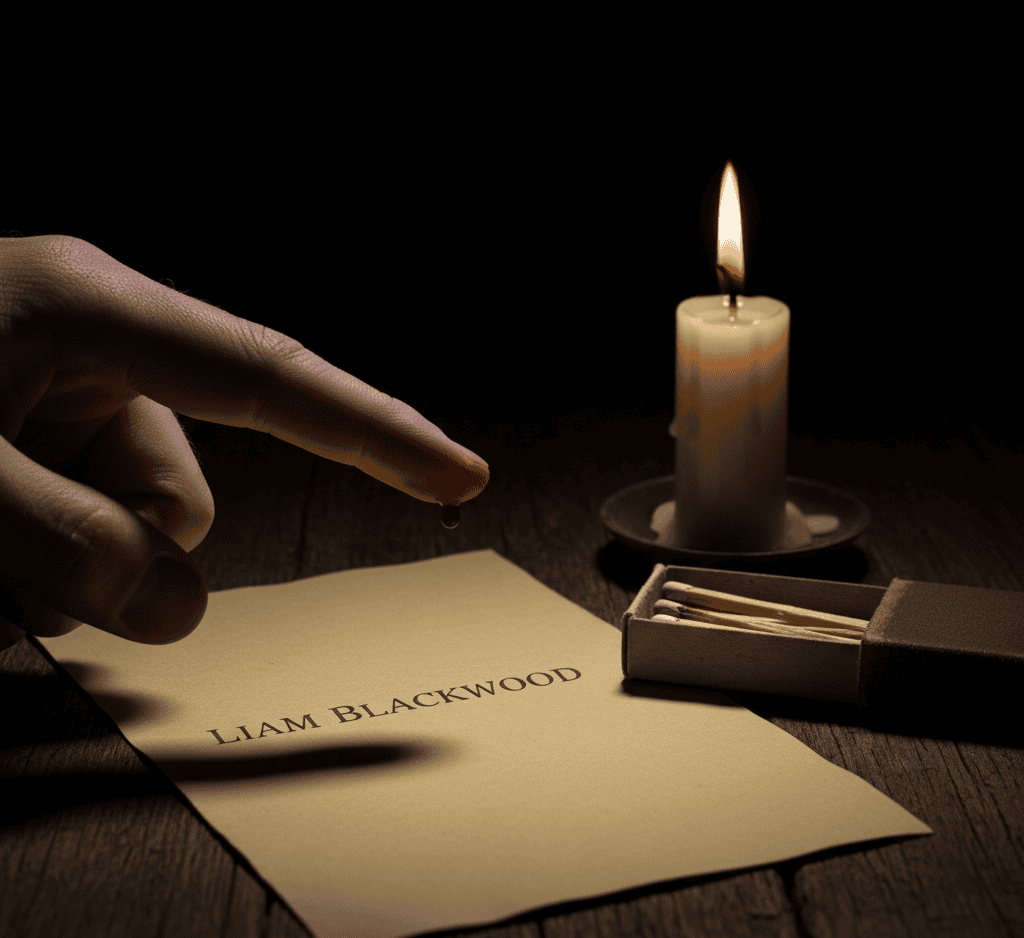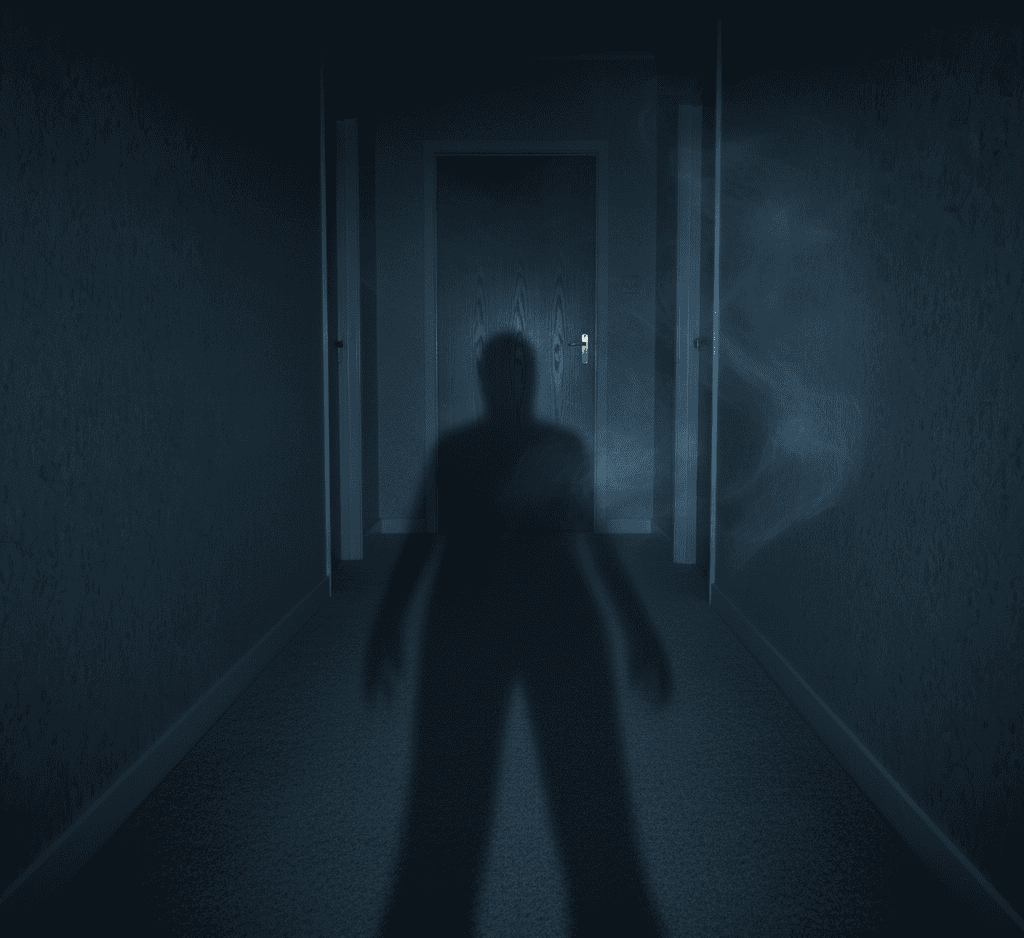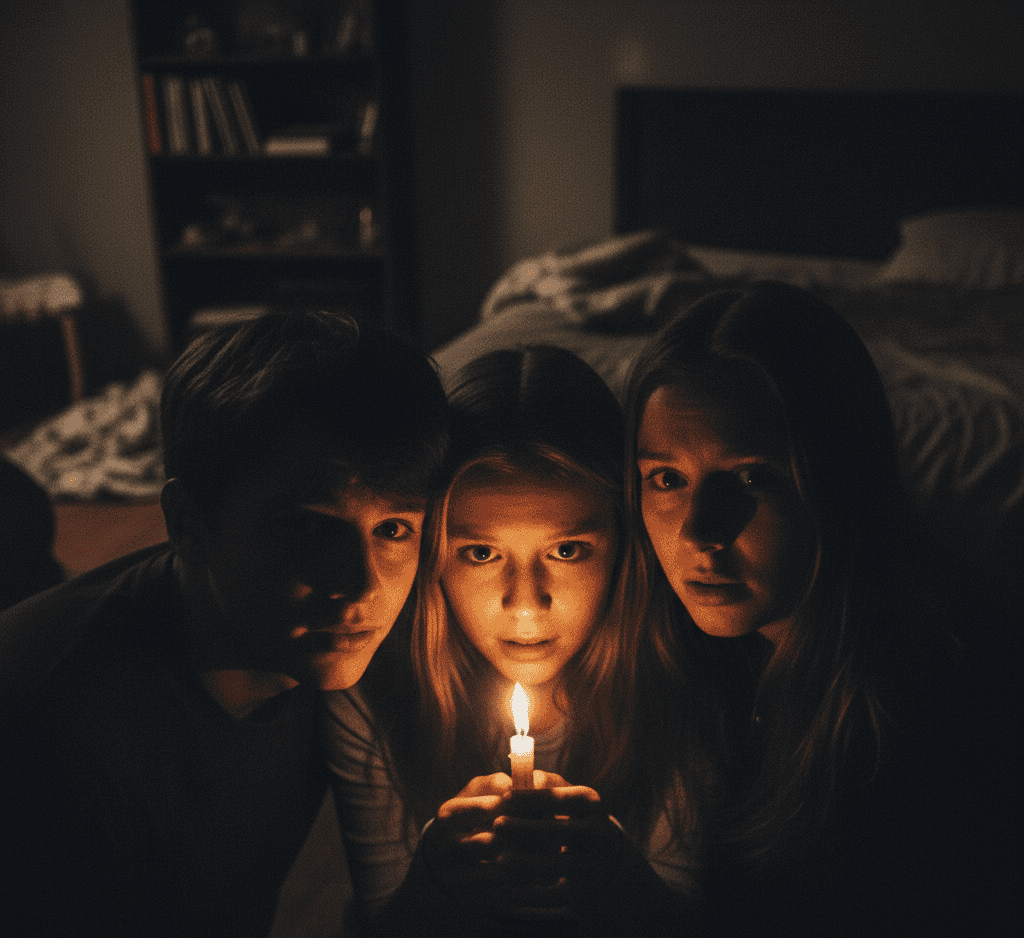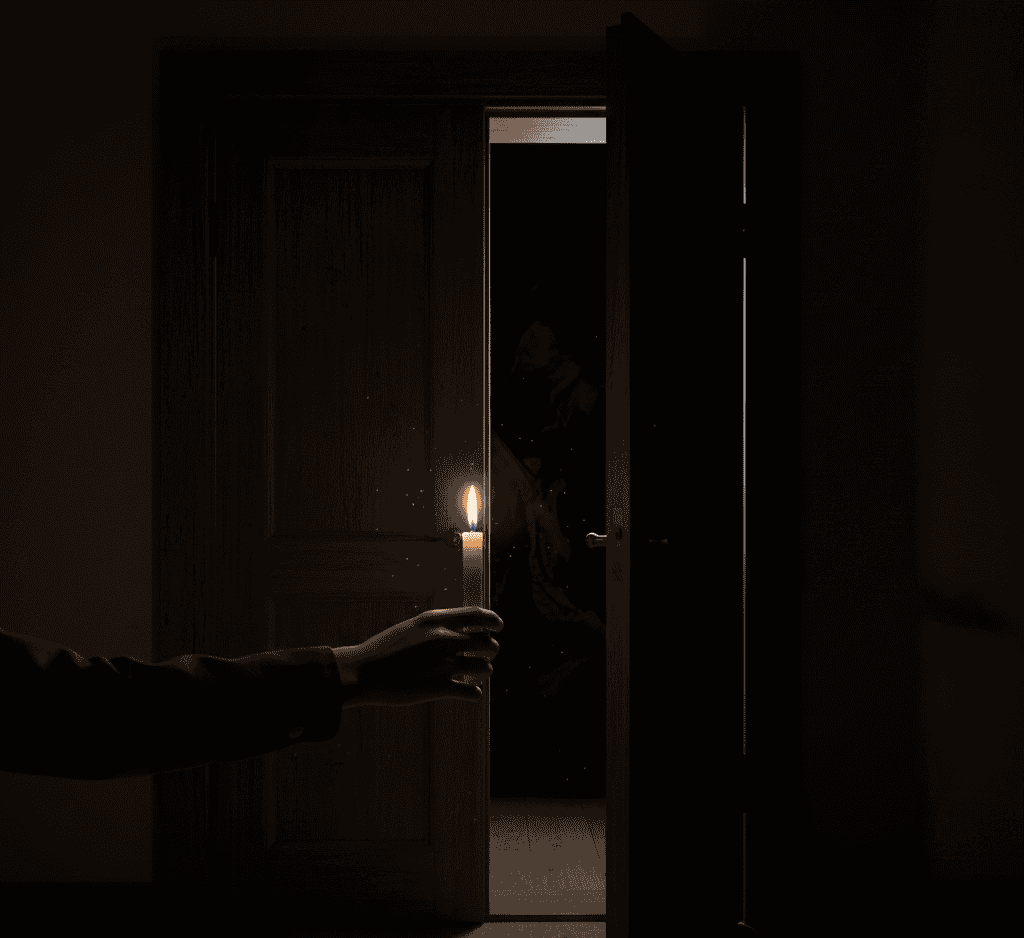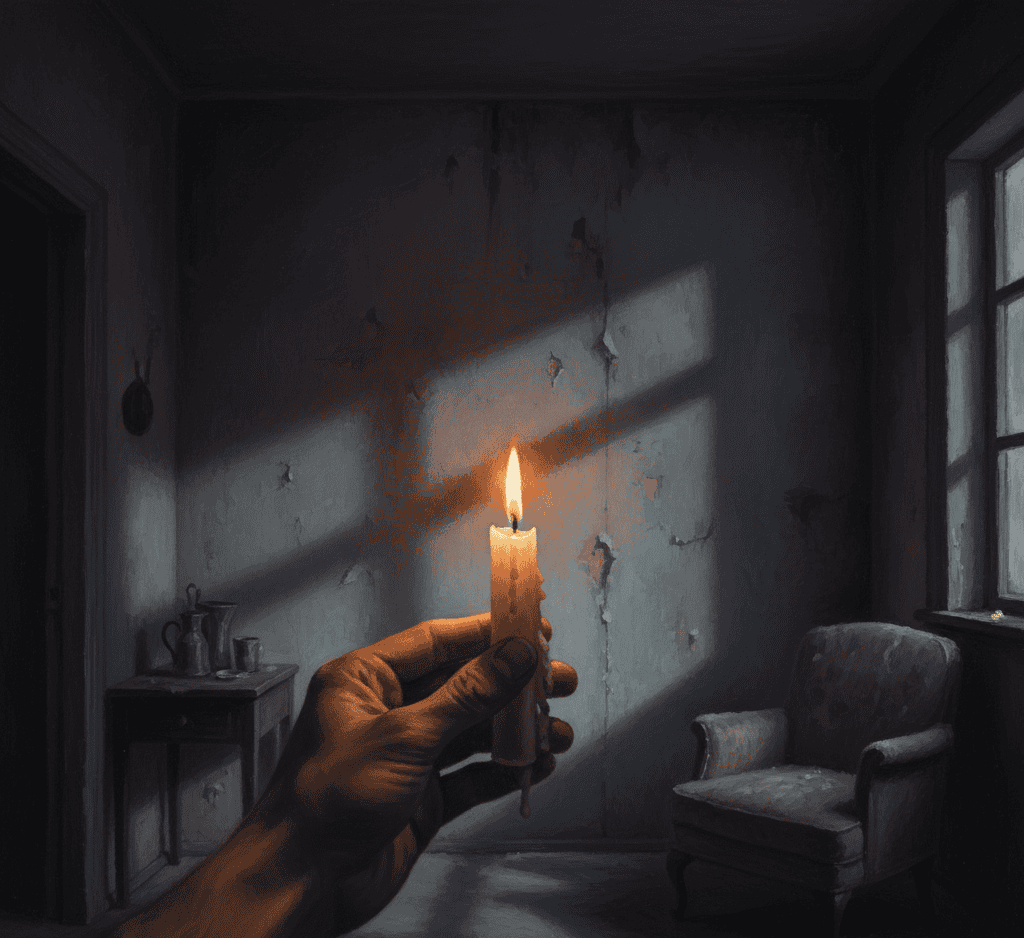You’ve probably heard of spooky challenges that spread online – Bloody Mary, Charlie Charlie, and the Elevator Game.
But none seem to carry the same cold dread as the Midnight Game.
It’s a story whispered on message boards and passed along in sleepovers, daring the curious to summon something ancient just for the thrill of surviving the night.
The more you read about the Midnight Game, the more it feels less like a game and more like a ritual you shouldn’t disturb.
Whatever its true origin, one thing remains the same across every version of the tale – once you start the game, you must never stop playing until the clock strikes 3:33 a.m.
The Rules That Should Never Be Followed
Like all urban legends, the Midnight Game comes with strict rules. They sound easy enough at first, but something is unsettling in how specific they are.
You begin the ritual right before midnight. You’ll need a piece of paper, a candle, a drop of your own blood, a door, and a box of matches.
The instructions say to write your full name on the paper, prick your finger, and let one drop of blood fall next to your name.
Then, at exactly midnight, you knock on your front door twenty-two times, with the final knock landing on the stroke of twelve.
After that, you open the door, blow out your candle, and close the door again.
By doing this, the story says, you’ve just invited the Midnight Man into your home.
You relight your candle right away – if it goes out again, it means he’s close.
The only way to survive the game is to keep moving and never let your candle stay dark for more than ten seconds.
You can’t use flashlights or other light sources. You can’t go to sleep. And you absolutely can’t leave your house.
If your candle blows out and you can’t relight it, you’re supposed to make a circle of salt around yourself and wait until 3:33 a.m. That’s when the game ends, and the Midnight Man leaves.
But if you break a rule or stop playing too soon, people say he’ll never leave at all.
The Things People Claim to See
The scariest part about the Midnight Game isn’t just the ritual – it’s the stories that follow it.
People online swear they’ve tried it, and their descriptions are eerily similar.
They talk about hearing faint knocking from inside the walls, or whispers behind them when they know they’re alone.
Some say they’ve seen tall shadows at the edges of their vision, shapes that vanish when they turn their heads.
One of the most common experiences is a sudden drop in temperature. The room grows ice-cold, and the candle flickers wildly as if someone invisible just walked by.
Others claim to smell something metallic, like blood, or to feel long fingers brush against their necks.
There are stories of people who played in groups, thinking that the company would protect them. It never does.
One person’s candle goes out, another screams, and before long, everyone is running through the house trying to keep the light alive.
When the clock finally hits 3:33, the survivors say the silence is deafening, as if the house itself is catching its breath.
And yet, no one ever really proves anything. There are no clear photos, no videos that can’t be faked, just frightened words typed late at night.
Still, the stories keep spreading, and new versions of the rules appear every year.
Why the Legend Endures
The Midnight Game might be a story, but it sticks in people’s minds because it plays with something ancient – our fear of darkness and the unseen.
It gives a shape and a name to that feeling of being watched when the lights go out. It dares us to test our bravery against something invisible.
There’s also something strangely ritualistic about it. The rules sound almost like a prayer turned upside down.
The knocking, the blood, the candlelight – all of it feels symbolic, as if you’re reenacting something older than the internet could ever be.
Folklorists have compared it to “ordeal games,” old traditions meant to test guilt or courage by summoning spirits.
The Midnight Game, in that sense, might be a digital echo of these forgotten rites, repackaged for modern thrill-seekers.
But there’s another reason it refuses to fade. It’s interactive. You don’t just read about the Midnight Game – you can fare it.
It turns a story into an experience, one that promises fear you can feel in real time.
Even people who know it’s fake admit that part of them wonders what would happen if they actually tried.
What the Game Really Means
You don’t have to believe in the Midnight Man to understand why this story resonates. The legend is a reflection of our relationship with fear.
It’s about curiosity and control – the urge to peek into the darkness but keep one hand on the light switch.
You’re alone in your house, holding a fragile flame while something unseen moves around you.
It’s a perfect metaphor for the way people deal with their own private fears.
In a world where most of our fears are digital and abstract, the Midnight Game feels primal. It strips fear back to its roots.
Just you, the dark, and the sound of your heartbeat. It reminds us that no matter how modern we become, part of us still believes that things go bump in the night for a reason.
Psychologists might say the game thrives because it gives people a safe way to confront terror.
You follow the rules, feel your pulse race, and when the sun rises, you’ve survived something – even if it was imaginary.
The story becomes a shared experience, a modern campfire tale for a world without campfires.
Still, every warning attached to the game feels oddly serious, as if someone somewhere knows something we don’t. Maybe that’s part of the fun—or part of the danger.
Don’t Play It Alone
The Midnight Game is one of those legends that makes people laugh nervously and say, “I’d never do that.”
But there’s always someone who will. They’ll read the rules at midnight, light the candle, and knock on the door twenty-two times, just to see what happens.
If you’re tempted, remember what the stories say. Once you open that door, you can’t be sure who or what might step inside.
Maybe it’s just a game. Maybe it’s something older, waiting for the curious to call its name.
Either way, every rule has a reason, and every warning comes from somewhere.
The Midnight Game reminds us that bravery and foolishness often look the same in the dark. It whispers that some doors, once opened, can’t be shut again.
So if you ever find yourself staring at the clock, candle in hand, wondering whether to try – it might be better to let midnight pass in peace.
Because in a world full of mysteries, there’s no shame in leaving one unanswered.
So if you hear someone online bragging that they survived the Midnight Game, smile, and let them have their story.
Maybe it’s true. Maybe it’s not. But when the lights flicker or the air suddenly turns cold, you might think of that knock on the door and feel a chill crawl up your spine.

Ho sempre sentito una forte connessione con il Divino fin dalla mia nascita. Come autrice e mentore, la mia missione è aiutare gli altri a trovare l'amore, la felicità e la forza interiore nei momenti più bui.

